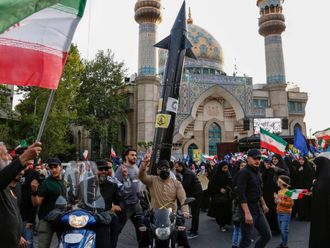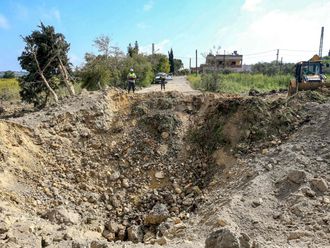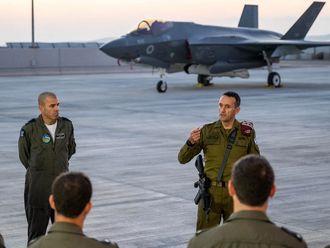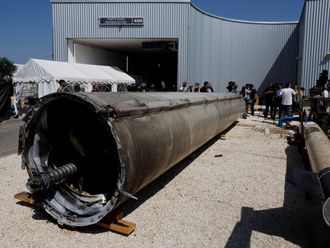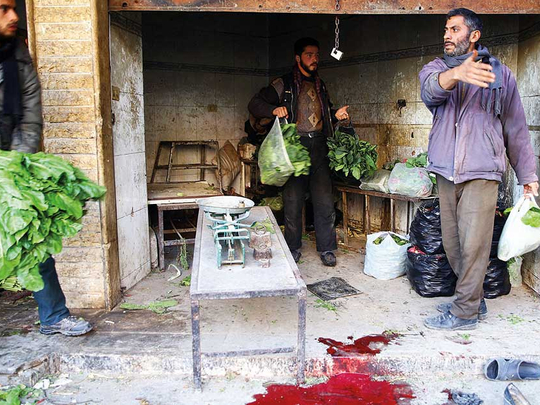
Dubai: Besieged for nearly five years, and targeted by severe daily attacks from the Syrian regime, residents of opposition-held Eastern Ghouta are in a “desperate” situation, UN officials have warned.
The dire conditions faced by nearly 400,000 inhabitants of the region warrant continuous access to every person in Eastern Ghouta, and also those in need in other parts of Syria, they added.
“The situation in Eastern Ghouta is absolutely desperate,” said Dina Al Kassaby, a Cairo-based spokesperson for World Food Programme (WFP).
“Families there don’t have a regular supply of food,” she told Gulf News.
“In the past two months, we were able to deliver food to just over 100,000 people and special nutrient supplies to nearly 25,000 children.”
When the last convey of aid reached Douma, “one of the hardest hit areas in Eastern Ghouta on November 12 … We found families in a really desperate situation. There are high rates of malnutrition among children,” Al Kassaby said.
“People are eating garbage and animal fodder,” she added.
Eastern Ghouta has been brutally targeted by the regime in the past few days.
More than 120 people have been killed since the Syrian army began its offensive on the rebel enclave nearly two weeks ago, according to the UK-based Syrian Observatory for Human Rights (SOHR). At least 15 children are among the casualties, it said.
Eastern Ghouta is one of several “de-escalation” zones in Syria announced by Russia, Iran and Turkey earlier this year.
The ongoing fighting in Ghouta and some other Syrian cities and towns makes the arrival of humanitarian aid and food difficult or delays it, explained Firas Al Khatib, spokesperson for United Nations High Commissioner for Refugees (UNHCR).
Difficult to reach
There are nearly three million Syrians in 10 locations across Syria who are difficult to reach, he told Gulf News.
“And we are continuously trying to reach people in those areas,” Al Khatib said.
“It is our duty to assist people in need, and we have the resources and the means to assist them, except we are lacking access,” said Al Kassaby.
“If we have open access to all people in need across the country, we wouldn’t have found ourselves in such a situation in Eastern Ghouta,” she said.
However, working in war-zones has its difficulties and necessitates certain precautions.
Safety for aid workers
UN agencies and NGOs are cognisant of the safety of their own personnel and also seek protection for those who are receiving the aid.
Aid agencies seek the approval of all the parties concerned in the conflict to have access to an open transport route for aid. Today, there are nearly 10 million Syrians in need of humanitarian assistance inside Syria, according to UN officials.
Different organisations offer different aid.
WFP distributes food boxes comprising of basics such as cooking oil, rice, lentil, flour and canned food, while UNHCR is more concerned with distributing aid related to cold weather, especially with the arrival of winter.
“For us, the priority now is distribute winter items, such as sleeping bags, high thermal blankets, carpets, extra sheets and mattresses,” said Al Khatib.
Syria, along with Yemen and Iraq were declared by the UN at the top level of emergency. The Middle Eastern countries were ranked at level 3, the highest-level humanitarian emergency.


